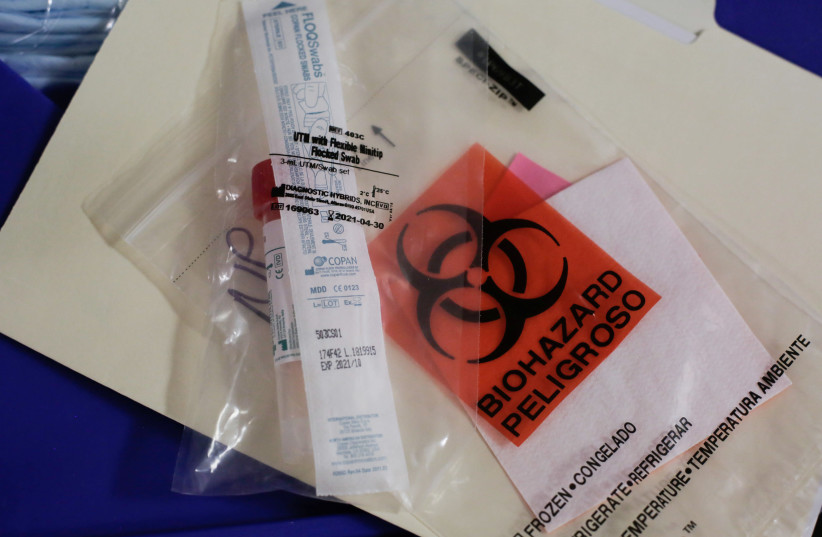The new patients include a high school student, a principal and a young man who recently returned from Italy.

Israelis who had been in home-based quarantine but voted at the Klausner Street “coronavirus voting station” in Tel Aviv are required to extend their isolation by another 14 days, according to the Health Ministry. The request came after “patient No. 15” was diagnosed with the novel virus Tuesday night.
The patient had returned from Italy on February 29 and been in self-quarantine except for between 10:15 and 11:15 a.m. on Monday, when he left his house to vote in the Israeli election.
Two other people were also diagnosed late Tuesday: a high school student from the Brenner Regional Council and an elementary school deputy principal from Kiryat Ono. Patients No. 14 and 15 both contracted the coronavirus at the Red Pirate toy store in Or Yehuda.
As a result of the high school student being diagnosed with the potentially lethal virus, some 1,150 students from his high school have been asked to enter home-quarantine, too.
Moreover, the teacher’s 27 students have also been quarantined.
According to the Health Ministry, all of the newly diagnosed patients have mild symptoms.
“All of the instructions provided by the Health Ministry have prevented the disease from spreading,” said Minister of Education Rafi Peretz. “Schools and school principals are receiving clear instructions – we are not leaving anyone to deal with this on their own.
“The decision to put these students in isolation was made by the Health Ministry,” he continued, noting that the Education Ministry would continue to follow the Health Ministry’s recommendation “in hopes that these actions will prevent wider spread.”
Health Ministry director-general Prof. Itamar Grotto, who is currently under quarantine himself, posted on Facebook Wednesday to help inform the public about the spread of the coronavirus in Israel and the world.
He said that there are currently more than 93,000 cases of the novel virus around the world and more than 3,200 people dead as a result. Outside of China, there have been 13,000 cases reported and about 200 deaths.
“At present, the disease is declining in China,” he said, “but in all other countries, we are watching the rise and spread of the disease.”
The disease associated with the coronavirus has been named COVID-19 by the World Health Organization.
Grotto named South Korea, Japan, Italy, Iran, France, Germany, Spain and Switzerland among the known countries with high rates of the virus, but said that there are other countries about which we don’t have enough information, such as the United States.
“It is estimated that the disease is more widespread than reported and we need to make decisions based on partial information,” he said, “taking into account the differences between countries and their readiness levels.”
Responding to an inquiry about whether Israelis should forgo all travel or might face unexpected quarantine upon return to Israel, Grotto said that “travel to countries where an outbreak is already known should know be considered,” and that one should reconsider any travel at all based on necessity and personal health status.
“Older people, over the age of 60, or who have pre-existing conditions, such as diabetes, heart disease or respiratory illness, are advised to take extreme care,” Grotto noted. “The risk for children under the age of 18 is actually lower.”
He added that the possibility of one returning from a visit and being required to go into isolation is real and should be taken into account. “However, it should be noted, as there is widespread expansion [of the virus] in Israel, the risk of acquiring the disease in Israel will be no different than abroad and the Health Ministry’s recommendations will focus more on guidelines within Israel rather than travel abroad,” he said.
“We believe that widespread expansion in Israel is inevitable,” Grotto concluded. “We are currently working on estimating the extent of morbidity expected using mathematical models based on the knowledge we have on the subject from around the world.
“It seems we are looking at dealing with this for at least the next months, so we need to preserve our energy.”
As reported by The Jerusalem Post
